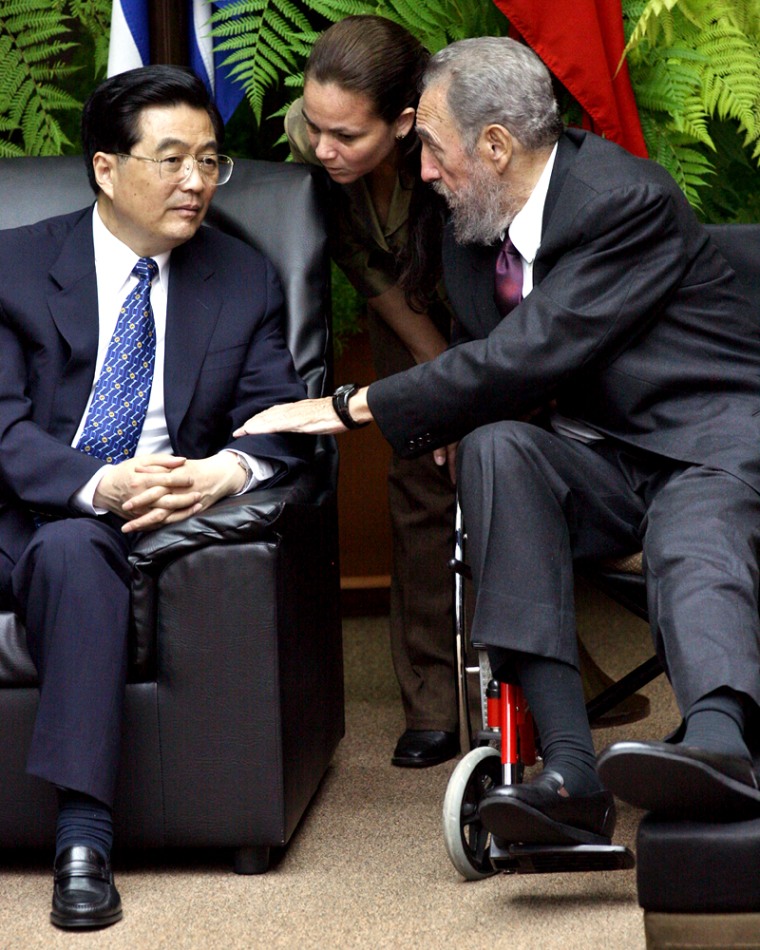Cuba’s faltering economy could be getting unexpected support from a far-away place: China has agreed to invest in the island’s tourism, bio-technology and mining sectors.
During a 48-hour visit to the island, Chinese President Hu Jintao signed 16 agreements with Cuban leader Fidel Castro, which included forming a joint venture in Cuba’s lucrative nickel industry, exploring nickel in undisclosed locations on the island, and reactivating a nickel plant abandoned by the Soviets a decade ago.
Cuba has the third-largest nickel reserve in the world and China, driven by the biggest economic expansion in its history, needs huge quantities of the metal for its growing manufacturing sector.
Last week on national television, Castro welcomed Chinese investors and predicted that Chinese financing would double the island’s nickel output. Currently nickel is Cuba’s chief export, expected to generate some $800 million this year.
The Chinese president also gave Castro some significant debt relief. Under one accord, the Cuban government won a 10-year grace before it must start paying on four different interest-free loans granted between 1990 and 1994.
Hu arrived in Havana on Monday, after attending the Asia-Pacific Economic Cooperation forum in Santiago, Chile. In his first meeting with Castro since becoming president in March 2003, Hu stressed the “fraternal ties” between the two communist governments.
“We have helped each other and treated each other with sincerity,” Hu said. “We are fraternal brothers… passing the test of changing and adverse international circumstances.”
Making Cuba a destination for Chinese tourists
On Tuesday, Hu met with top trade negotiators from both countries, meeting to sketch out possible deals in the telecommunications and tourism industries.
One transaction under discussion is to establish a direct air route between the two capitals, with the aim of making Havana a gateway for Chinese tourists touring South America.
Cuban tourist officials began vying for a piece of the Chinese market earlier this year when the island became the first nation in the Western Hemisphere to gain “Approved
Destination Status” (ADS) from the Chinese government, allowing Chinese travel groups to visit the Caribbean destination.
Last year 16 million Chinese tourists traveled abroad and the World Tourism Organization predicts China will become the fourth-largest tourist source nation by 2020.
After the fall of its principal trade partner, the Soviet Union, Havana branched out and has steadily strengthened commercial ties with Beijing.
According to Chinese trade statistics, business between the two countries grew 36 percent this year alone.
Cuba’s Minister of Commerce, Ricardo Cabrisas, announced that China now constitutes 10 percent of Cuba’s foreign commerce and ranks as the island’s third-largest trading partner after Venezuela and Spain.
